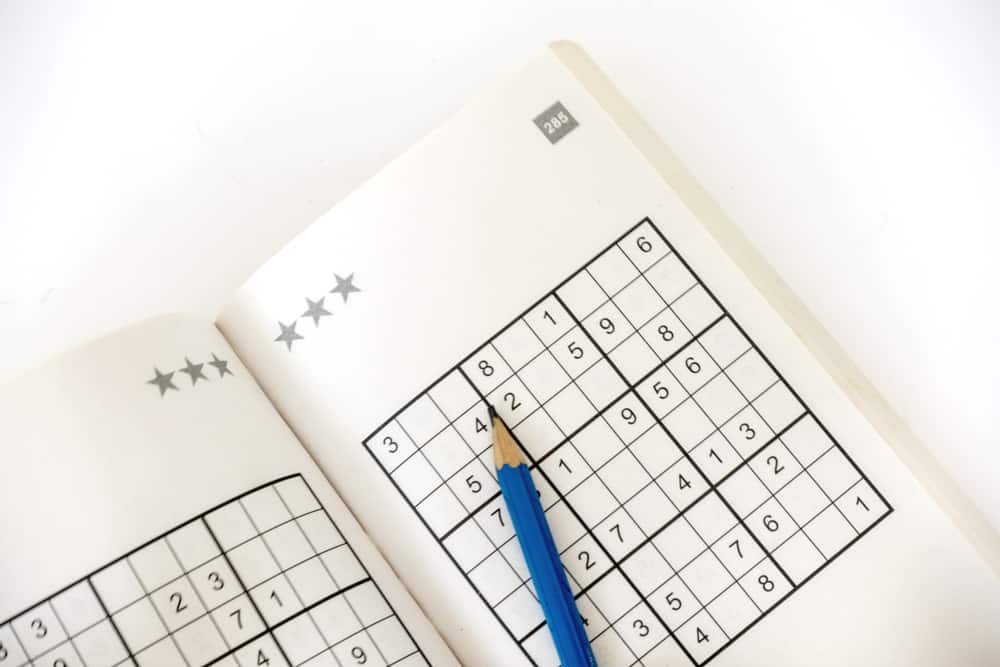Last Updated on January 7, 2024 by Gamesver Team and JC Franco

Sudoku fans may wonder why the quick-thinking numbers game isn’t taught and promoted as much to kids in schools. After all, the benefits for the developing mind are many! Wouldn’t you want your child to benefit from all the pros of learning Sudoku?
Providing the body with nutrition is a top priority for most parents, but what about focusing some of that nutrition on the brain? Sudoku provides a great mental workout for the brain – it’s like a fun dose of vitamins for your child.
Learn about each of the reasons why your kids should play Sudoku regularly below.
These are 15 reasons your kids should play Sudoku:
Content
Toggle1. Playing Sudoku Greatly Improves Memory (kids Aged 7 to 11).
Don’t take our word for it! Cambridge University hosted a study that discovered this little fact. Sudoku improves the memory capacity of the developing mind, and it is especially seen in children aged 7 to 11. The Daily Mail featured an article on this study, and the effect of puzzles on children’s development in 2014, which you can read here
2. Sudoku Improves Abstract Reasoning.

Sudoku is a fantastic tool for teaching young children the skill of abstract reasoning. When teaching children to play Sudoku, it is important to teach them to ask two main questions: What? Where? Knowing what to place where is how they are taught to solve the puzzle, and this is the type of abstract reasoning that Sudoku requires.
When children learn to ask these questions, they learn to think a little deeper, which is excellent for abstract reasoning, which is used in Sudoku and other areas of life.
3. Playing Sudoku Improves Data Memorizing Ability.
The same Cambridge University study mentioned earlier also discovered that Sudoku is a great starting point for teaching children mathematics and science. Of course, while Sudoku often includes numbers, it requires no arithmetic or scientific knowledge and skills. Both mathematics and science subjects require students to memorize and quickly recall chemical symbols, patterns, and theories. While Sudoku cannot teach these things, it does teach children to learn to quickly memorize numbers, patterns, symbols, among others.
4. Sudoku Teaches Children Patience & Focus.
Sudoku World Champions all have something in common, patience and focus. Those who excel at Sudoku have highly-organized minds and a methodical thinking pattern and ability.
It is vital for these people to scan the Sudoku grid and pick up on patterns and opportunities. Sometimes these patterns aren’t obvious, and a calm, patient approach is required. Sometimes the environment is noisy or distracting, and the player will need to learn to focus and block out everything going on around him/her. By learning to do this, kids can learn how to draw on calmness, patience, and focus at other times when it is required in life, not just while playing Sudoku.

5. Playing Sudoku Teaches Logical Thinking.
6. Playing Sudoku Teaches Kids Decision-Making Skills.
When children are taught to play Sudoku, they quickly learn that the game requires logical thinking and quick decisions. As a result, they learn to promptly investigate the evidence available and make a decision based on that. There is only one unique answer, so kids need to learn to be confident about the choices that they do make when playing a game of Sudoku.
They also then learn to face the consequences of the decision that they have made. With exposure to Sudoku puzzle solving games, kids learn to reason more effectively and to carefully make decisions instead of just “winging it.”
7. Playing Sudoku Reduces Kids Screen Time.
It’s difficult to get children to drag themselves away from the television, laptop, phone, or tablet. Unfortunately, few things can keep kids entertained these days. Sudoku is different, though. It is actually quite addictive, and once kids realize that every puzzle is different, they usually get the Sudoku “bug.” Each puzzle can be quick or time-consuming and actually engages the mind which keeps their eyes on their Sudoku puzzle and off the screens!
8. Sudoku Teaches Children to Pay Attention to Detail.
Kids have a tendency to rush and overlook things, especially if they are never taught to slow down, have a closer look, and actually note what is going on around them. Sudoku can change that.
In a game of Sudoku, the numbers 1 to 9 must be arranged on a grid without repeating the numbers in each row or column or sub-grid more than once. To solve the puzzle, children must pay attention to the numbers already provided and must have a mental note of the numbers still to be used. To get it right, great attention to detail is required. When children learn to play Sudoku from an early age, they learn to pay attention to the finer details, and that can provide highly useful in all areas of life.
9. Sudoku is Mobile-Friendly.

There are various options for downloading or using websites and apps to play Sudoku online or on a mobile device. This also means that when you take your kids along with you to a meeting or a place where there’s a bit of a wait, they will be playing on their mobile device while expanding their logical thinking and mental capacity at the same time. It’s a win-win situation
10. Sudoku Makes Learning Fun.
11. Sudoku Puzzles Occupy & Entertain Kids Simultaneously.
Ever wondered what you can do with the kids that isn’t messy and that they won’t get bored with after just a few minutes? Don’t want to dump the kids in front of the TV to waste away the day? Not many kid’s activities these days can occupy children and entertain them for very long. Be it a result of the digital age or instant gratification approach of society, it is just a fact of life.

If your child hasn’t been exposed to Sudoku yet, they are bound to be intrigued by it. You can turn the activity into a hobby by encouraging kids to collect old magazines and newspapers to cut out and start their own Sudoku puzzle collection. You can also encourage them to host their own Sudoku competitions to see who can get to the solution first. Once children realize that Sudoku is more than just a confusing grid they see printed in the daily newspaper and actively get involved, you will find them being both occupied and entertained.
12. Playing Sudoku Creates Healthy Competition Among Kids.
Most kids competitions tend to be physical (sport) or art based. What about a battle of the wits and brain powers? Kids are naturally competitive – it’s a part of growing up. Children that tend to be overly competitive can learn to hone their competitive natures by playing and winning at Sudoku.
Solving Sudoku puzzles can be quite meditative, which can teach a calmer competitive approach. It’s also healthy for children to compete in ways that develop stronger thinking, memory, and thought processing skills at the same time
13. Playing Sudoku Could Potentially Boost Kids IQ Levels.
It’s a powerful tool for developing a child’s brain and mental capacity. People who are able to quickly solve Sudoku puzzles usually have a higher IQ than those who struggle. The more your child practices and the quicker he/she gets, the more good is being done for their IQ.
14. Playing Sudoku Teaches Kids Rational Thinking & Problem-Solving.

There’s no trickery or frivolity when it comes to solving a Sudoku puzzle. There is one solution, and it must be reached in a precise way. Children will need to observe and investigate what is, to then work out what is required to complete the puzzle. Kids taught this from an early age, learn how to solve problems based on the information that they have. Careful, rational consideration is made, and then a definitive decision is come to. That’s how it works in Sudoku, and that’s how it works with problem-solving in real life
15. Sudoku Provides Opportunity for Family Quality Time.
Sudoku is a game that can be enjoyed by the whole family unit from kids on primary school to granny in the old age home. Family days can incorporate entertaining Sudoku challenges, which are fun and also mentally healthy for each member of the family.
In closing
If you were wondering if you should introduce your kids to Sudoku, consider the above 15 compelling reasons why you must.
This article was co-authored by our team of in-house and freelance writers, and reviewed by our editors, who enjoy sharing their knowledge about their favorite games with others!
-
Gamesver Team
-
Gamesver Team
-
Gamesver Team
-
Gamesver Team
-
Gamesver Team
-
Gamesver Team
-
Gamesver Team
-
Gamesver Team
-
Gamesver Team
-
Gamesver Team
-
Gamesver Team
-
Gamesver Team
-
Gamesver Team
-
Gamesver Team
-
Gamesver Team
-
Gamesver Team
-
Gamesver Team
-
Gamesver Team
-
Gamesver Team
-
Gamesver Team
-
Gamesver Team
-
Gamesver Team
-
Gamesver Team
-
Gamesver Team
-
Gamesver Team
-
Gamesver Team
-
Gamesver Team
-
Gamesver Team
-
Gamesver Team
-
Gamesver Team
-
Gamesver Team
-
Gamesver Team
-
Gamesver Team
-
Gamesver Team
-
Gamesver Team
-
Gamesver Team
-
Gamesver Team
-
Gamesver Team
-
Gamesver Team
-
Gamesver Team
-
Gamesver Team
-
Gamesver Team
-
Gamesver Team
-
Gamesver Team
-
Gamesver Team
-
Gamesver Team
-
Gamesver Team
-
Gamesver Team
-
Gamesver Team
-
Gamesver Team
-
Gamesver Team
-
Gamesver Team
-
Gamesver Team
-
Gamesver Team
-
Gamesver Team
-
Gamesver Team
-
Gamesver Team
-
Gamesver Team
-
Gamesver Team
-
Gamesver Team
JC Franco
JC Franco serves as a New York-based editor for Gamesver. His interest for board games centers around chess, a pursuit he began in elementary school at the age of 9. Holding a Bachelor’s degree in Business from Mercyhurst University, JC brings a blend of business acumen and creative insight to his role. Beyond his editorial endeavors, he is a certified USPTA professional, imparting his knowledge in tennis to enthusiasts across the New York City Metropolitan area.

